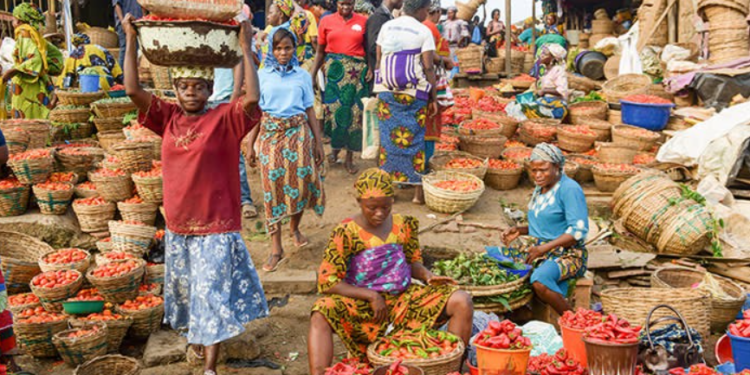
Nigeria’s headline inflation rose to 34.60 per cent in November 2024 reflecting a further surge in the costs of goods and services across the country.
This is according to the latest Consumer Price Index (CPI) data released by the Nigeria Bureau of Statistics (NBS).
This shows that the headline inflation rose by 0.72% from 33.88% in October.
On a year-on-year basis, the Headline inflation rate rose by 6.40% points from 28.20% in November 2023.
However, on a month-on-month basis, the Headline inflation rate in November 2024 (2.638%) was 0.002% points lower than the 2.640% recorded in October 2024.
This means that in November 2024, the rate of increase in the average price level is slightly lower than the rate of increase in the average price level in October 2024.
The Urban inflation rate on a year-on-year basis was 37.10% in November, marking a 6.88% rise from the previous year. On a month-on-month basis, urban inflation increased by 0.02% to 2.77%.
Rural inflation a year-on-year inflation rate of 32.27% in November 2024, representing a 5.84% increase from November 2023. However, on a month-on-month basis, rural inflation decreased by 0.02% to 2.51%.
The twelve-month average inflation rates for urban and rural areas stood at 35.07% and 30.71%, respectively. These figures indicate a significant rise in inflation rates compared to the previous year.
The Food inflation rate in November 2024 rose by 7.08% to 39.93% from 32.84% in November 2023, on a year-on-year basis.
The year-on-year rise in Food inflation was caused by increases in the prices of various food items such as Yam, potatoes, Maize Grains, Rice, Palm Oil, and Vegetable Oil, among others.
On a month-on-month basis, the Food inflation rate in November 2024 was 2.98%, increasing by 0.05% points compared to the 2.94% recorded in October 2024.
The month-on-month rise is attributed to the increase in the average prices of various classes of food, including fish, meat, bread and cereals, and grains.
The average annual rate of Food inflation for the twelve months ending November 2024 over the previous twelve-month average was 38.67%, which was 11.58% points higher compared with the average annual rate of change recorded in November 2023 (27.09%).
In November 2024, Sokoto, Yobe, and Edo states experienced the highest year-on-year food inflation rates, at 51.30%, 49.69%, and 47.77%, respectively. In contrast, Kwara, Kogi, and Rivers states recorded the lowest year-on-year food inflation rates, at 31.39%, 32.95%, and 33.27%, respectively.
On a month-on-month basis, Yobe, Kano, and Kebbi states saw the highest food inflation rates in November 2024, at 6.52%, 5.95%, and 5.68%, respectively. Meanwhile, Borno, Adamawa, and Kogi states experienced the slowest month-on-month food inflation rates, at 0.76%, 0.90%, and 1.21%, respectively.
The core inflation, which excludes the prices of volatile agricultural produce and energy stood at 28.75% in November 2024 on a year-on-year basis, rising by 6.36% from 22.38% recorded in November 2023.






